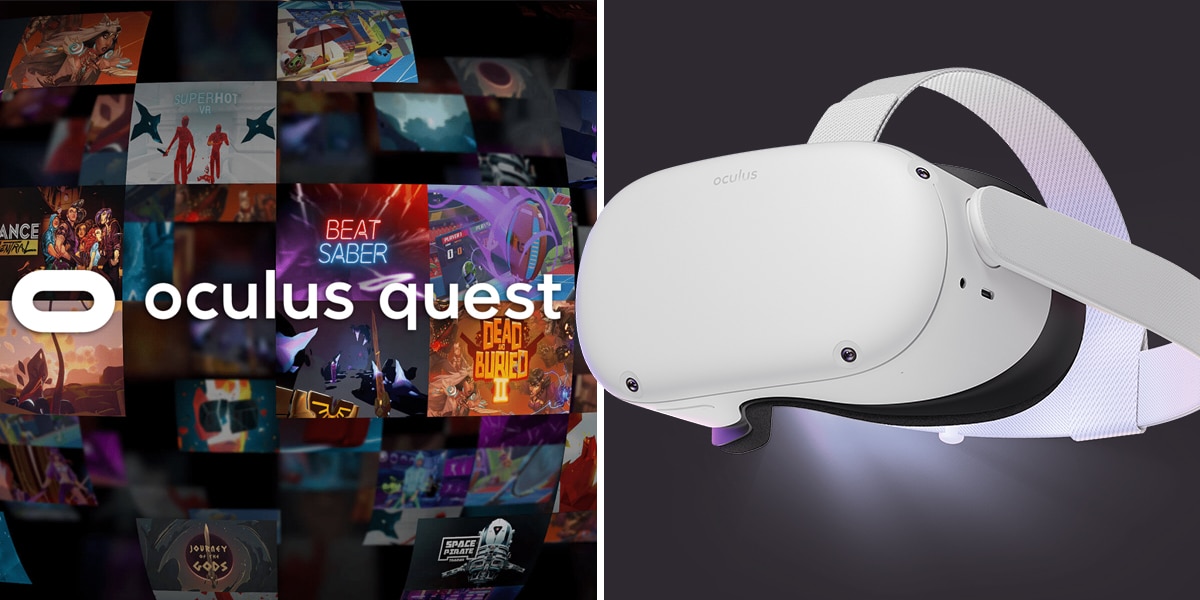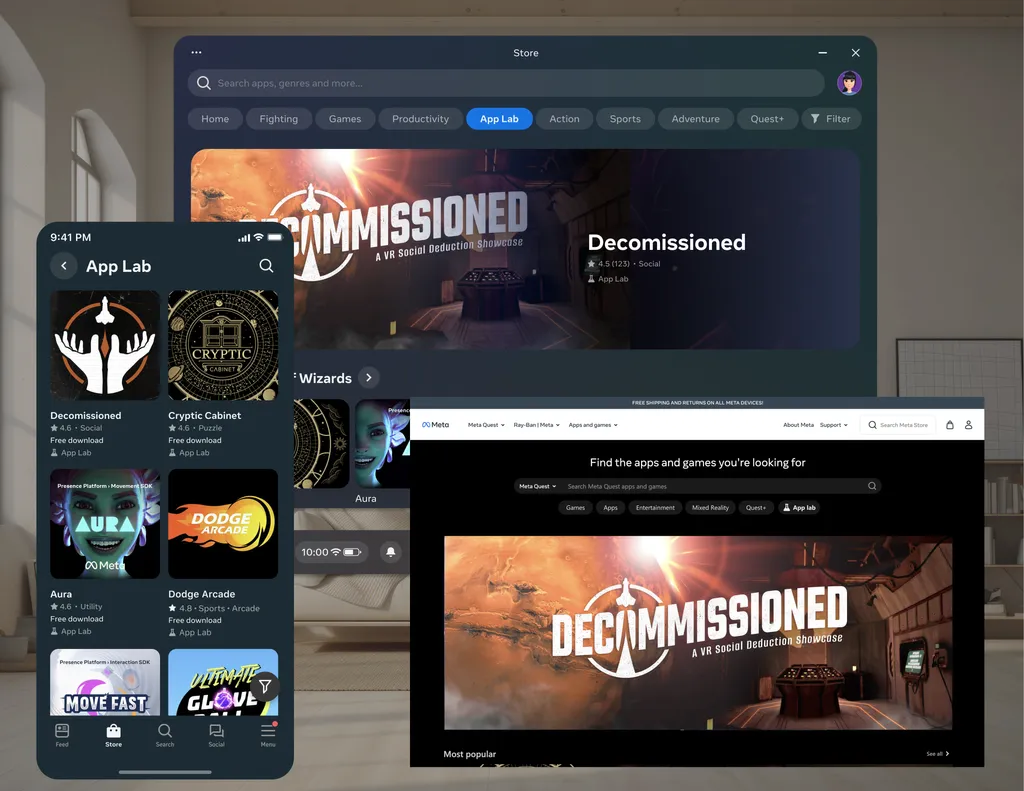Meta says it will get rid of Quest's unlisted App Lab and instead make the store much more open.
The current Meta Quest Store has faced both criticism and praise for its highly curated console-like approach. That approach avoids the "shovelware flood" problem some other stores suffer from, but also heavily constrains the reach of independent developers, including those with new and interesting ideas Meta's curators don't like but consumers may love.
Since 2021 Meta has offered a secondary option for on-platform app sales and distribution called App Lab. App Lab offers hosting, distribution, and monetization, but apps on it are unlisted. Potential customers can only find them through a direct URL link or by searching for the exact app name and scrolling down, and are given a warning when installing them.
Many of the most popular Quest Store apps today started off as App Lab apps, including Gorilla Tag, the top played app on the platform.

Meta today announced the eventual death of App Lab, and this will come in two phases.
The first phase, coming soon, will see an App Lab tab added to the store interface, as seen in the image above. This will let Quest owners browse and find App Lab apps easily instead of needing a URL or exact search term.
The second phase will come further in the future. It will see App Lab killed and merged into one unified store, which will adopt App Lab's more open requirements. Meta says store apps will still need to meet "basic technical, content, and privacy requirements", but will no longer be rejected based on a subjective taste or quality basis.

This news comes as Meta also announced it's rebranding the Meta Quest OS to Meta Horizon OS and the Meta Quest Store to Meta Horizon Store, bringing the platform to third-party headset makers starting with ASUS and Lenovo.
Horizon Store's more open approach will come as a major relief for independent XR developers currently struggling to get reach for their apps, and help Meta live up to its lofty claims of being the "open alternative" to Apple Vision. However, it could also harm discoverability of existing store apps as a wave of new entries arrive to compete, and make content recommendations from outlets like UploadVR more important than ever.































